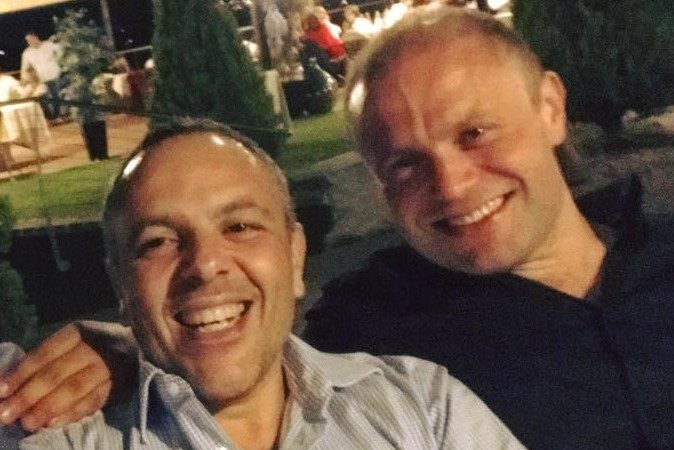Prime Minister Joseph Muscat has declared that he will await the outcome of the magisterial inquiry on 17 Black before taking any action regarding money laundering or attempted money laundering accusations against his chief of staff Keith Schembri and Tourism Minister Konrad Mizzi. Yet, he’s taking the country for a ride.
Money laundering is the act of disguising the source or true nature of money obtained by illegal means and reintroducing it into the legal economy. This act of trying to launder money is a stand-alone offence (it is separate from the underlying offence) under Maltese law.
Further, the law also punishes attempted money laundering so if a person clearly starts the process including making preparations to launder money it is not necessary for that act to have been successful.
In simple terms, the Prevention of Money Laundering Act (Cap. 373) clearly states that a person may be convicted of a money laundering act even without material evidence and without needing to prove that the underlying crime even took place.
If there is evidence – even circumstantial – it is not the responsibility of the accuser to establish that an act of money laundering has taken place. All it has to do is show that the receipt of funds or intended receipt of funds is not in line with the accused’s declared income. Any surplus amounts must be backed by plausible explanations.
While normally a criminal investigation by the police seeks to obtain enough evidence on a suspect before arraigning him or her (the burden of proof in a criminal court is “beyond reasonable doubt”), this is not the case in money laundering offences.
If the police are satisfied that there is enough prima facie evidence (at first glance, which includes circumstantial evidence) they normally proceed to arraign the suspect.
This lower threshold of evidence is also matched by a reversal of the burden of proof. In money laundering prosecutions once the prosecution shows that the money or arrangements were suspect, then the burden of proof shifts and rests entirely on the shoulders of the accused.
Hearnville Inc belongs to Mizzi, and Tillgate Inc belongs to Schembri. This is not contested.
These two companies were to receive €150,000 monthly from two companies in Dubai – 17 Black and Macbridge, according to leaked emails from Nexia BT to Mossack Fonseca.
These emails have never been contested, yet Mizzi and Schembri continue to deny any knowledge of 17 Black (or Macbridge). 17 Black was, however, listed as the ‘main client’ (the main source of funds) of Tillgate and Hearnville.
Schembri also admitted in an official statement that 17 Black was included as a “potential client” included in a “draft business plan” drawn up for Schembri’s business group.
17 Black belongs to Yorgen Fenech, CEO of Tumas Group and co-owner of the new gas power station. The ownership of Macbridge (as well as locating it) is as yet a mystery.
The Prevention of the Money Laundering Act clearly says that all funds derived from outside declared income are to be treated as suspicious even if these funds were not meant for funding further illegalities – such as terrorism – or something innocuous such as buying a mausoleum for granny.
The amount of €150,000 monthly is triple the annual government salary of these two individuals.
So, no, Prime Minister. You do not need to wait for the outcome of a magisterial inquiry. The police have confirmed that they are in receipt of that long denied FIAU report on 17 Black and the circumstances surrounding it. Accordingly, the individuals involved are under criminal investigation.
The magisterial inquiry is, as the Prime Minister knows, a mechanism to safeguard evidence not a court or tribunal that will say “guilty” or “not guilty”. Inquiries into the in genere cannot even do that at law.
Arguments to the effect that it is the company that is under investigation are pathetic and dangerous. Who placed money into the company and who was expecting that money or meant to benefit from it?
Those are the relevant questions and the answers all clearly point to people around the Prime Minister or involved in the gas power station deal. If the Prime Minister continues to claim that he is not privy to his Chief of Staff’s business dealings (which he shouldn’t have in the first place), then he is either lying or grossly incompetent.












